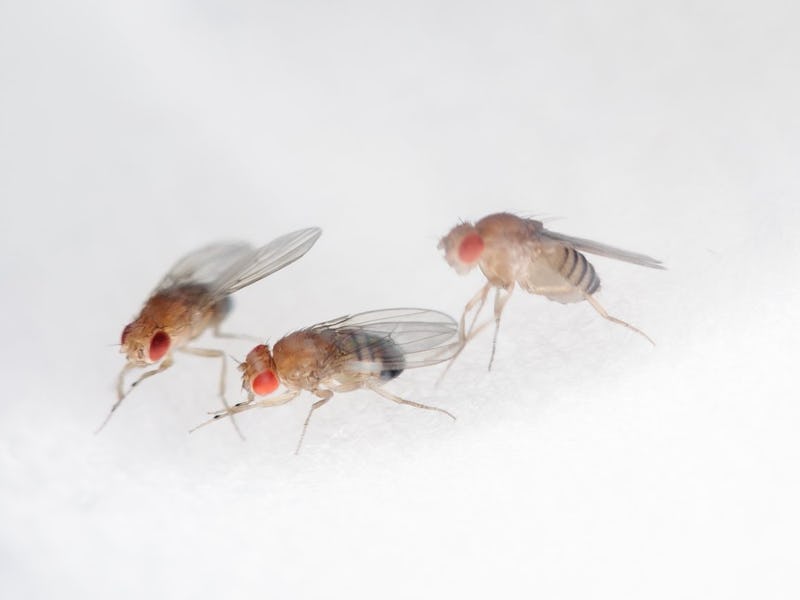Meet NASA’s newest team of astronauts: 1,000+ fruit flies! The little fellas will be launching into space for genetic testing on the next cargo resupply mission to the International Space Station.
The bottles were packed up on May 22 and sent on a cross-country journey to the Kennedy Space Center, about 2,500 miles from the Fruit Fly Lab at NASA’s Ames Research Center in Silicon Valley. Because the insects have a short lifespan—about 40 to 50 days—most of the flies that are originally shipped won’t make it. But, rest assured, they will be able to reproduce inside their bottles thanks to a concoction of fly food, cooked up by a steam kettle that will also be going to the ISS.
The fruit flies are scheduled to launch to the International Space Station in June 2017 aboard SpaceX’s eleventh commercial resupply services mission.
Fruit flies are the perfect model citizens for understanding how cardiovascular systems are affected in zero gravity because they share about 61 percent of disease-causing genes with humans. They will be studied to understand how life in orbit affects astronauts’ physiology, which is still very mysterious to doctors.
After his year in space, Scott Kelly underwent several tests which were compared to his twin brother’s, Mark, who was on Earth. To put it bluntly, Scott’s results were shocking. One mind-boggling effect of prolonged zero-gravity was the physical appearance of his telomeres, which grew longer than his brother’s while in space. Telomeres are the ends of chromosomes that contain redundant DNA and simply protect chromosomes from binding to one another. Telomeres shorten as a person ages, so when Scott’s reversed while in space, it was the opposite of what scientists expected to happen.
1000 bottles of fruit flies bottled up and ready to go to space.
The bottles are color-coded to identify the various genetic strains of each population, which will ensure a wide range of test results for scientists. While aboard the ISS, the bottles will be monitored for temperature and air flow to make sure the precious cargo survives.
The CRS-11 mission will launch via a SpaceX Falcon 9 on June 1 as part of the CRS-11 mission, which will be carrying 7,297 pounds of supplies to the ISS, including our winged friends.
